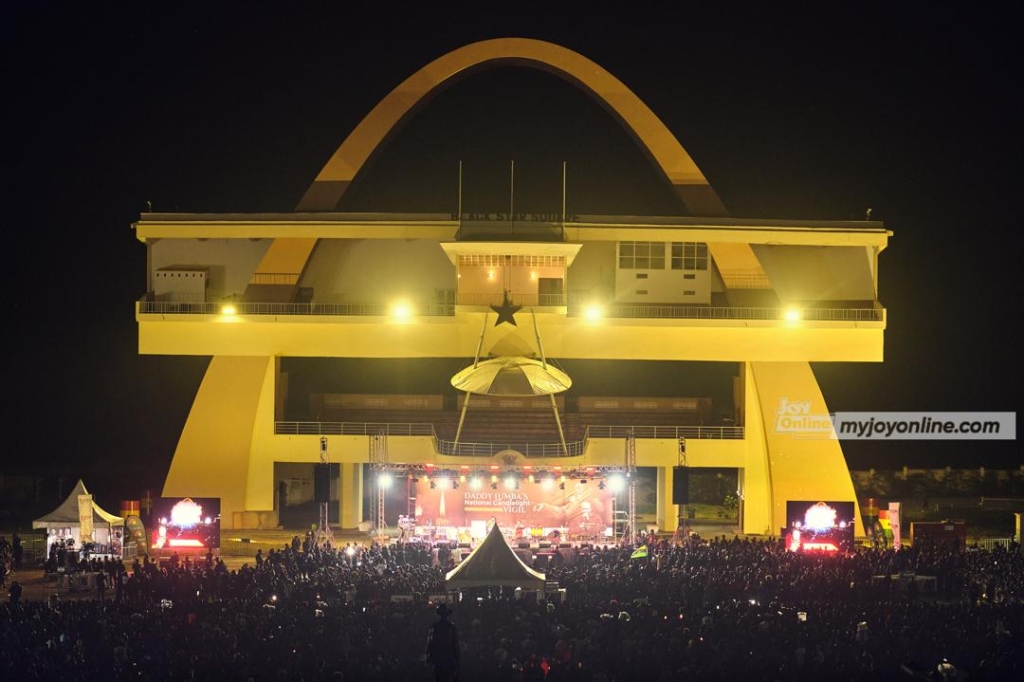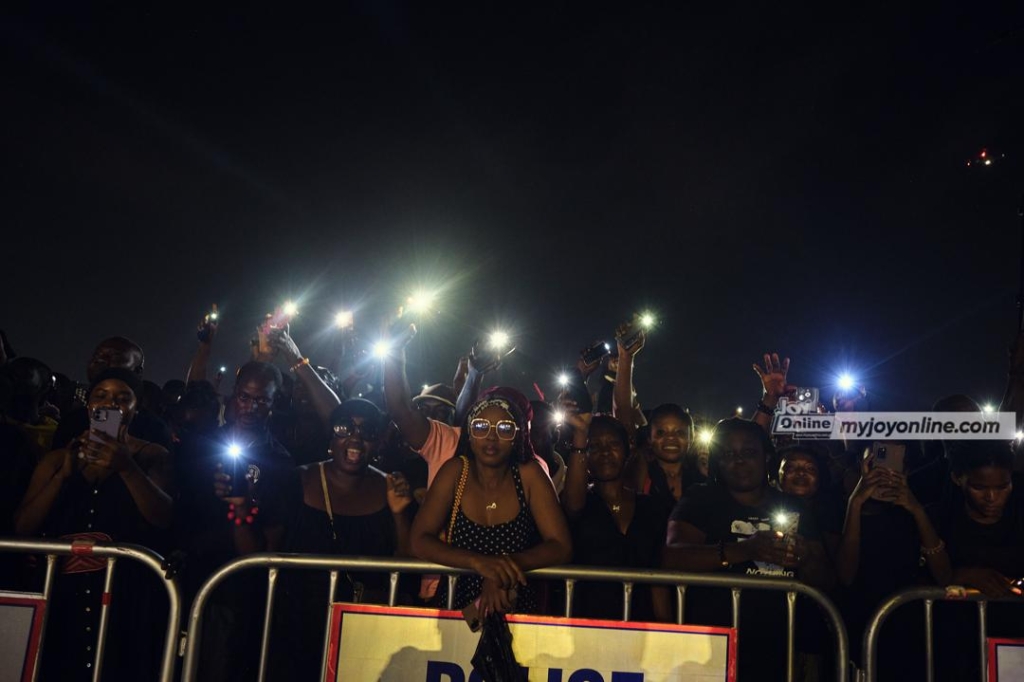A week has passed, but the silence is deafening. Ghana lost its Highlife king, a man whose voice was a national emotional thermostat. Charles Kwadwo Fosu, known to the world as Daddy Lumba, is gone. The shock still reverberates, a visceral pain that has united a nation. Now, a nation turns to remember. As dusk fell over Accra, Independence Square was a sea of flickering candles, a gathering of a broken-hearted people, a collective dirge for a man who didn’t just sing—he translated the soul of a nation. This was not just a funeral; it was a coronation of a legend.
A Nation’s Mourning, A Family’s Grief
The news of Lumba’s passing over a week ago, after a short illness at the Bank Hospital in Accra, hit Ghana like a thunderclap. A wave of profound grief and disbelief swept through the nation and the world. Social media was immediately flooded with tributes. The bipartisan nature of the mourning became evident as leaders from across the political spectrum paid their respects.
In a powerful display of respect, former President Akufo-Addo visited his home to offer condolences in person, a gesture that underscored the musician’s deep personal connection to him.
Akufo-Addo, in his tribute, underscored Lumba’s personal impact, saying, “I will be deeply pained if I am excluded from the burial arrangements.” Meanwhile, current President John Dramani Mahama issued a public tribute, stating, “Lumba’s unmatched musical genius provided the soundtrack to our lives.”
The National Democratic Congress (NDC) also released a statement, with the party’s General Secretary, Fifi Fiavi Kwetey, describing Lumba as a musician who “transcended every barrier” and was loved by all Ghanaians. These formal statements are now being echoed by a deeper, more personal outpouring of grief from the music community. This public mourning is a testament to Lumba’s reach; his songs were not just music; they were the soundtrack to Ghana’s life. His family, though shattered, has asked for privacy as they navigate this profound loss. Their lawyer, Fati Ali Yallah, described them as being “in a state of shock, a state of pain.”

Highlife’s Global Impact
Daddy Lumba’s influence transcended borders. His music resonates deeply with Ghanaians in the diaspora, a vital link to home for those in Berlin, London, New York, and beyond. This candlelight vigil was not just a local event; it was a global one, with simultaneous vigils reported to have been held in key diaspora cities. It was a symbol of a shared heritage. The German Embassy in Accra even issued a statement crediting Germany for shaping his musical legacy, noting that it was in Germany that he transitioned into Highlife and formed the Lumba Brothers with Nana Acheampong.
A new generation of international fans is discovering his genius, connecting with his poetic lyrics and feeling the soul of Ghana through his melodies. Even King Charles III, in March, included Lumba’s song “Mpempem Do Me” on his official Apple Music playlist, a global nod to his immense talent. The data speaks for itself: in the days immediately following his death, an unprecedented 30 of his songs dominated the Apple Music Ghana Top 100 chart, a powerful testament to his enduring popularity and a nation’s need to find solace in his voice.
The Music That Endures, a Cultural Inheritance
Lumba’s career spanned over three decades, with more than 30 albums and over 200 songs to his name. His music was a mirror of Ghanaian society. He sang about love, politics, and life’s struggles. His songs “Yentie Obiaa,” an anthem of self-confidence, and “Aben Wo Ha” became national phenomena, chanted at football games and political rallies.
Fellow musician Ofori Amponsah, mentored by Lumba, fought back tears as he paid a heartfelt tribute, saying, “I didn’t deserve this, but when he realised the gift and grace upon my life, he took me in and mentored me… He was a father to me.” Critics and fans alike are now arguing that his lyrics are so rich in metaphor and symbolism that they should be taught in Ghanaian classrooms, a recognition of his status as a “philosopher in song.”
This vigil, with a live band performing his timeless hits, was not just a concert; it was a collective act of remembrance, a powerful declaration that his music will continue to educate and inspire. As the musician’s union (MUSIGA) president, Bessa Simons said, “Daddy Lumba was not just an entertainer. He was a movement.”

A Legacy Immortalised
The event at Independence Square was a powerful statement. It was a recognition of Lumba’s cultural importance. He was more than a musician; he was an institution, a national treasure. As the candles flickered in the Accra night, and the crowd sang along to his hits in unison, his spirit lived on. It would live in the music, in the memories, and in the hearts of a grateful nation.
Scenes from the vigil confirm a powerful emotional atmosphere, with many in attendance fighting back tears as Lumba’s children were seen joining celebrities and well-wishers to honour their late father. The king of Highlife may be gone, but his legacy, as a voice for Ghana, will shine brightly forever. As one Lumba fan puts it, “My dad and I bonded over your songs, and those are memories I’m forever going to hold dear to my heart.” Another said, “He was Ghana’s human Spotify before data bundles.” And under the moonlight at Independence Square, Ghana pressed play on his memory, ensuring the music never stops.
DISCLAIMER: The Views, Comments, Opinions, Contributions and Statements made by Readers and Contributors on this platform do not necessarily represent the views or policy of Multimedia Group Limited.
DISCLAIMER: The Views, Comments, Opinions, Contributions and Statements made by Readers and Contributors on this platform do not necessarily represent the views or policy of Multimedia Group Limited.
Source: myjoyonline.com










